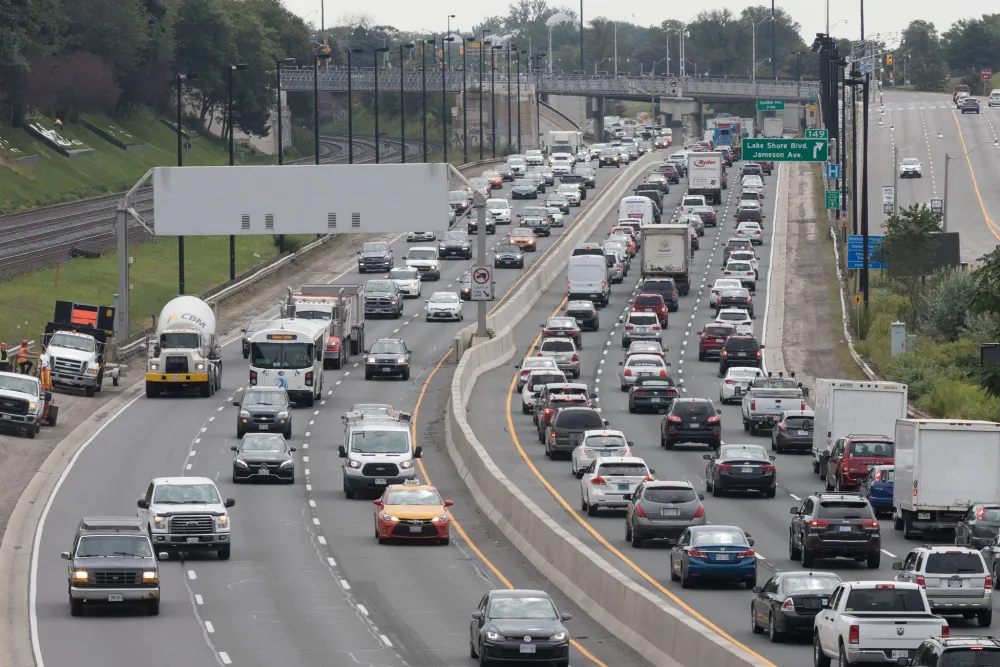TORONTO — A road toll on the Don Valley Parkway and the Gardiner Expressway would largely impact commuters with incomes above the median, meaning that concerns about lower-income commuters being disproportionately affected need not take this effective solution off the table. In fact, the likelihood of being impacted by the proposed road tolls increases as a commuter's household income goes up, according to new research released today in the Pembina Institute’s report, Fare Pricing.
Studying a previous proposal by the City of Toronto to put a $2 toll on the DVP and Gardiner, the research examined possible financial impacts on commuters across different income groups. While the research found that a majority of commuters who would be impacted have household incomes above Toronto's median, it also found that the toll would represent a higher financial burden on those lower-income households that would be impacted. With this in mind, the report points to the importance of studying income-based cost-mitigation measures, such as discounts, as part of future road toll design and pairing tolling with transit options. The City of Toronto can learn from other jurisdictions who have successfully put congestion charging, or road tolls, in place — including Stockholm, Sweden and London, UK.
Well-designed road tolls are a fair way to reduce congestion and air pollution, while raising revenue to fund investment in transit expansion. We believe road tolls and mobility pricing are necessary solutions to deal with congestion in the long-term, and the option should stay top of mind for government and policy makers. This research sheds light on previously unanswered questions about Toronto's road toll proposal, and will contribute to the conversation moving forward.
Quick facts
- Residents of Toronto have the longest commute times in Canada, with about one in six people spending more than an hour to get to work.
- Our research shows that approximately 172,000 workers in the GTHA (or 5.9% of all workers) are likely to be impacted by a toll on the DVP and Gardiner based on their current commute behaviour.
- Of these impacted workers, approximately 69.0% have household incomes above $60,000 (i.e. roughly above Toronto’s median household income) and more than half of these (34.0% of total) have household incomes above $125,000 (roughly double Toronto's median).
Quotes
“We know that Toronto has a congestion problem. We also know that mobility pricing, like road tolls, must be part of the solution, as it can incentivize behavior change, spread out the use of roads, and encourage mode shift to transit. Through this research, we have learned that road tolls in Toronto on the DVP and Gardiner would mostly impact above-median income groups, and that good policy design can help alleviate financial impact on households. We hope this research helps the conversation around road tolls move forward, as this solution needs to stay on the table.”
— Lindsay Wiginton, Managing director, transportation and urban solutions, Pembina Institute
[30]
Visit the Pembina Institute’s website to download a copy of Fare Pricing.
Contact
Kelly O’Connor
Interim Director, Communications
416-220-8804
Background
Report: Fare Driving (November 2015)
Factsheet: Eye on the Prize: The real possibility of new transit revenue (November 2016)
Blog: Road tolls will put Toronto in the fast lane to better transit (November 2016)




